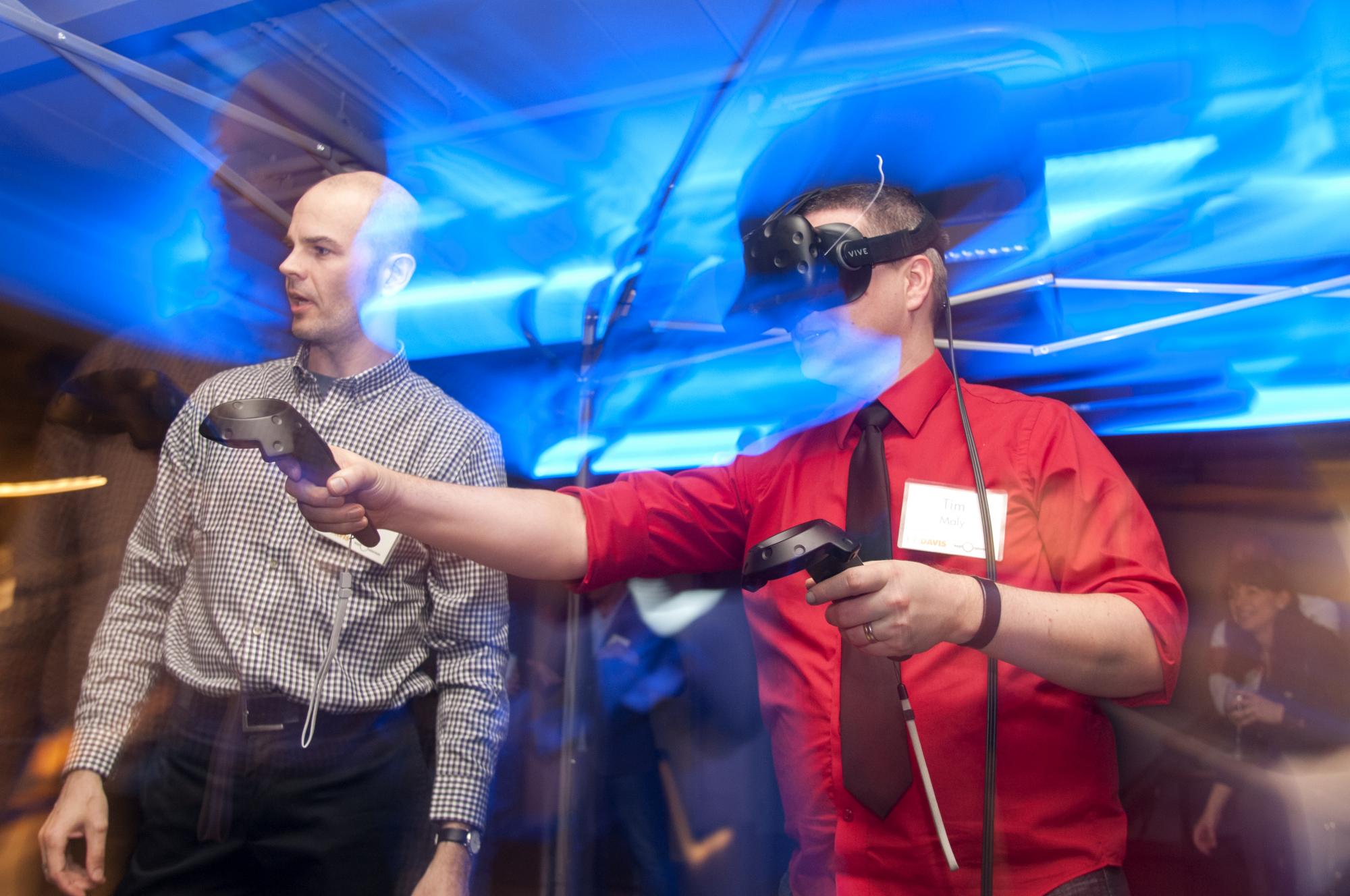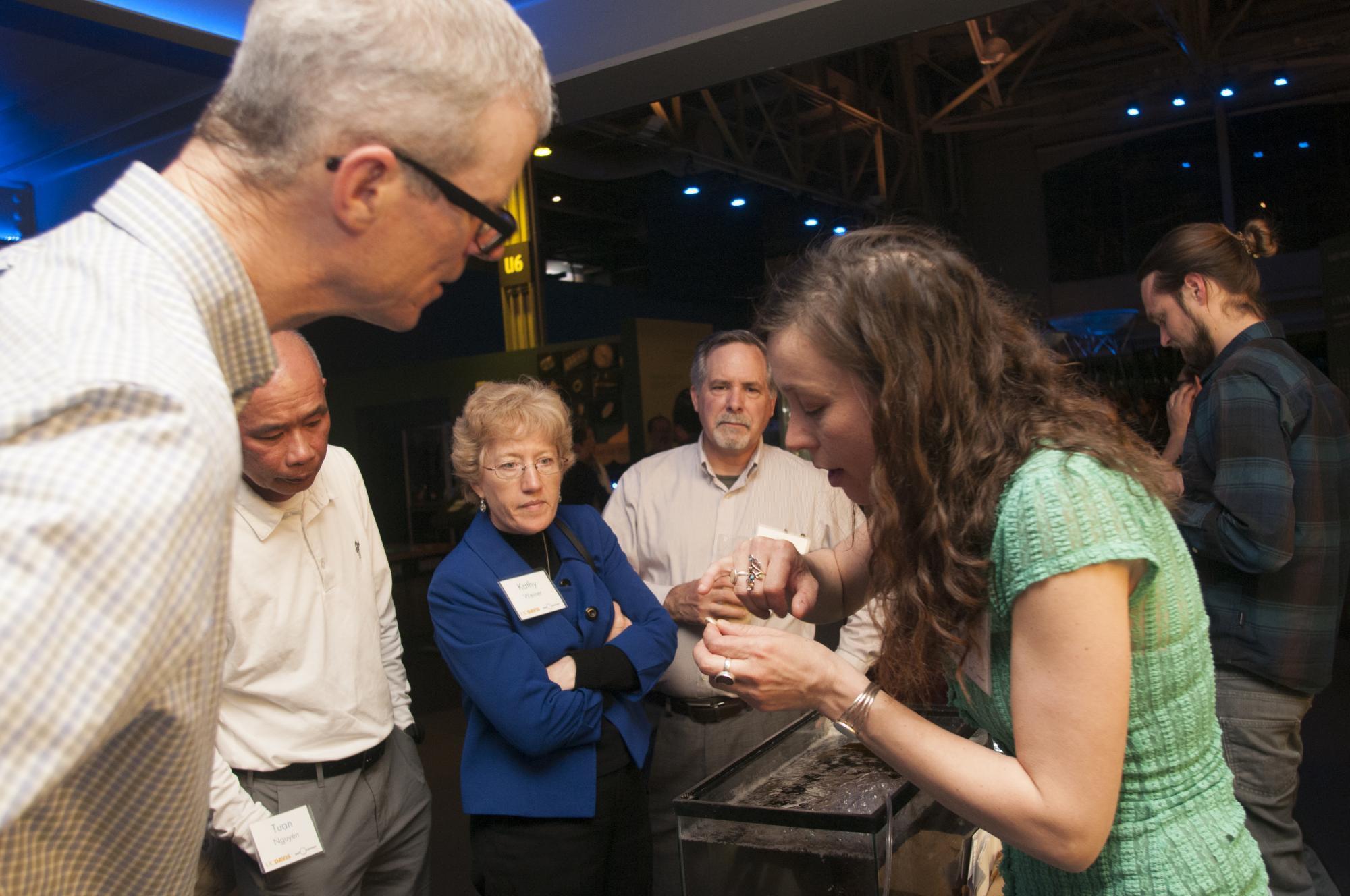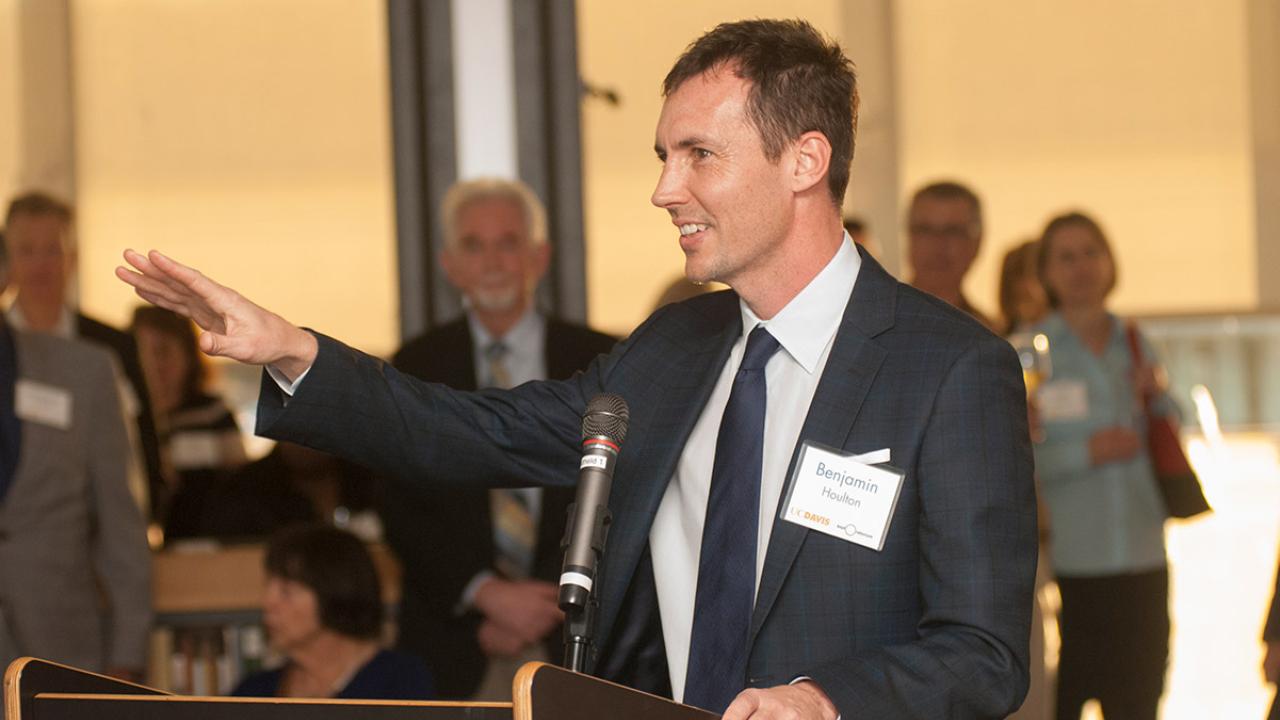Throughout UC Davis’ history, the university has brought scientists across disciplines to work together on the challenge of growing food. Now, Ben Houlton, director of the John Muir Institute of the Environment at UC Davis, is focusing his efforts on helping the campus apply that same collaborative know-how toward the problem of climate change.
He’s calling the effort “OneClimate,” and it’s a call to arms across campus to help create solutions to climate change, something he considers one of the most pressing and challenging problems of our time.
"One touch of nature makes the whole world kin.” — John Muir
“The foundation of what it means to be a society is being tinkered with through the effects of climate change,” Houlton said March 13 during a private event organized by JMIE and the UC Davis Office of Research at the Exploratorium museum in San Francisco. “The opportunity to help nucleate this faculty around this issue is an outgrowth of the interdisciplinary DNA of UC Davis and the John Muir Institute of the Environment. It’s who we are.”
Collective strength
More than 200 UC Davis scientists and supporters gathered at the OneClimate event to showcase the university’s collective strength in climate science research in the areas of science, engineering, art and design.

A variety of faculty-created exhibits peppered the event space. Guests learned about sea level rise in the Bay Area and severe sediment loss in the Sacramento-San Joaquin Bay-Delta. They ate oysters and learned about how ocean acidification is affecting oysters’ ability to form shells. They used virtual reality to experience — as UC Davis scientists did in actual reality — flying over the 2015 natural gas leak at Aliso Canyon and watching the methane levels spike. They learned about climate smart agriculture, used an interactive quiz to test their climate science knowledge, and more.

Thomas Maiorana, an assistant professor in the UC Davis Department of Design, illustrated to tangible and graceful effect the university’s connections through an art installation. It featured threads extending from its center and tying to points around a circle representing different UC Davis departments, colleges and centers that focus on climate science and the environment.
“We’re all in this together,” Houlton said, speaking of both the local and global community. “Some people talk of winners and losers. There are no winners and losers in this game. When people in Somalia can’t grow food, nobody wins.”
Media Resources
Kat Kerlin, UC Davis News and Media Relations, 530-750-9195, kekerlin@ucdavis.edu
